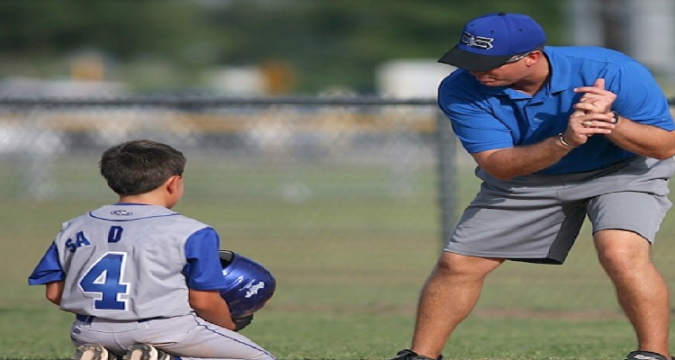
When it comes to game day, every athlete wants to be in top shape, both mentally and physically, to compete like a pro. From fueling your body correctly to staying mentally resilient, effective preparation can help you channel your training into a peak performance. Here’s a guide to essential game day preparation strategies that cover everything from warm-ups to mindset tips, so you can step onto the field, court, or track ready to give your all.
1. Start with a Well-Rounded Pre-Game Meal
Nutrition plays a huge role in sustaining your energy throughout the competition. A balanced pre-game meal can make all the difference in how you feel and perform on game day. Ideally, you should eat a light, nutrient-rich meal about 2-3 hours before the event. This meal should contain complex carbohydrates for sustained energy, lean protein to support muscle function, and healthy fats for added satiety.
For example, a pre-game meal might include oatmeal with fruit and a small serving of nuts, or a whole-grain wrap with lean turkey and veggies. Avoid heavy, greasy foods that can slow you down and cause discomfort during the game. Remember to stay hydrated by drinking water consistently throughout the day, as dehydration can lead to fatigue and hinder focus. You might also sip on an electrolyte drink if the competition involves intense physical exertion, especially in warm weather.
2. Engage in a Dynamic Warm-Up Routine
A well-structured warm-up routine is key to preparing your muscles and mind for the demands of the game. Start with a gentle jog or jump rope for 5-10 minutes to elevate your heart rate and increase blood flow to your muscles. Follow this with dynamic stretches that mimic the movements you’ll perform during the game—such as lunges, high knees, or arm circles. Dynamic stretching warms up muscles without reducing power, unlike static stretches, which are best saved for after the game.
You can also include sport-specific drills in your warm-up to activate muscle memory and increase agility. If you play basketball, practice dribbling and lay-ups; if you’re a sprinter, do some practice starts. This phase of preparation primes your body for action, reduces injury risk, and brings your focus to the game.
3. Focus on Mental Readiness and Visualization
Mental preparation is just as important as physical readiness on game day. Pro athletes often use visualization techniques to mentally rehearse their actions, which builds confidence and reduces anxiety. Spend a few minutes before the game in a quiet space, imagining yourself performing well, whether that’s scoring a goal, hitting a perfect serve, or keeping a strong pace.
Visualization helps familiarize your mind with success and keeps you calm under pressure. In addition to visualization, positive self-talk can be an effective way to boost confidence. Remind yourself of your strengths, the hard work you’ve put into training, and your commitment to giving your best. Repeating affirmations like “I’m prepared and ready to excel” or “I’m focused and strong” can help reduce any game-day jitters.
4. Practice Breathing and Staying Calm Under Pressure
The excitement of game day can make it difficult to stay calm, especially in high-stakes moments. Practicing deep breathing techniques can help calm your nerves and maintain focus during the game. Try inhaling deeply through your nose for a count of four, holding your breath for a count of four, and exhaling through your mouth for a count of four. This technique, known as box breathing, is used by many athletes and helps manage adrenaline and stay in control.
If you feel yourself getting anxious during the game, take a moment to pause, breathe deeply, and refocus. By staying in control of your breathing, you stay in control of your mindset, which helps you remain agile and adapt to changing situations during play.
5. Review Your Game Plan and Set Small, Actionable Goals
Reviewing your game plan or strategy can reinforce your confidence and focus. Go over key tactics, positioning, and any instructions from your coach, especially any specifics you practiced during training. Setting small, actionable goals for the game can help keep you grounded. These goals could be as simple as aiming for a certain number of successful passes, maintaining a strong pace, or achieving a set number of rebounds.
Breaking down your goals into smaller parts makes them feel more manageable and reduces performance anxiety. Achieving these mini-goals keeps you motivated, focused, and gives you a sense of progress throughout the game.
6. Maintain a Positive, Resilient Attitude
A positive, resilient mindset is essential for competing like a pro. Embrace any setbacks or mistakes as learning opportunities rather than letting them discourage you. Remember, even top athletes make mistakes; it’s part of the game. Learning to adapt and respond constructively to errors keeps your energy focused on the game rather than on negative thoughts.
In moments of frustration, remind yourself to stay present and look for the next opportunity to make a positive play. Staying upbeat and maintaining a flexible mindset allows you to recover quickly and avoid getting bogged down by negative thoughts.
7. Prioritize Recovery and Post-Game Reflection
After the game, prioritize recovery to support muscle repair and prepare your body for the next match or training session. Begin with a cool-down routine of gentle jogging or walking, followed by static stretching to ease muscle tension. Staying hydrated and eating a light, protein-rich meal after the game can also help your body recover more quickly.
Take some time to reflect on your performance, noting any areas for improvement as well as the things you did well. Reflecting in a balanced, constructive way will allow you to continually improve while keeping you motivated for future competitions.
By following these game-day tips—from physical prep and mental focus to a resilient attitude—you can step up to any competition with confidence and perform like a pro. Effective preparation maximizes your potential and keeps you primed to give your best, no matter what the scoreboard says.